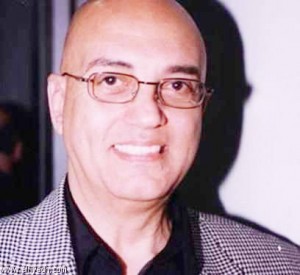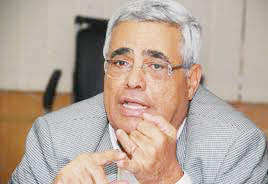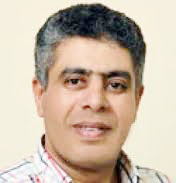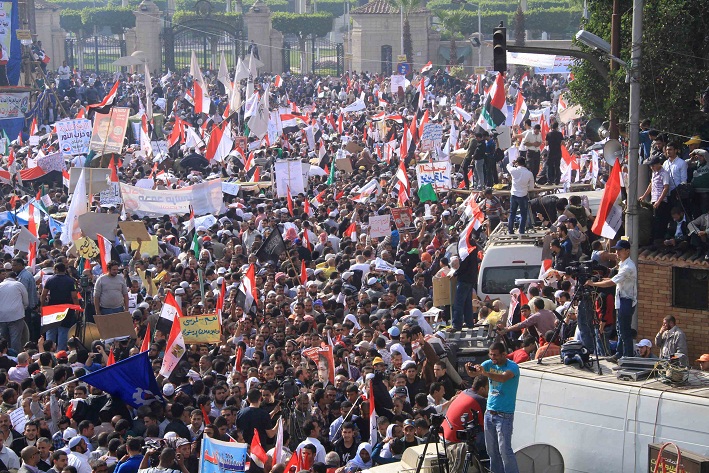Commentaries in different Egyptian newspapers have explored an assortment of topics concerning developments in the political scene. Some writers condemned the recent Islamist attacks on historic statues located inside the Japanese garden of Helwan, recalling the earlier destruction of Taha Hussein’s and Om Kolthoum’s statues. On another note, some columnists have compared the death cases of Khalid Said and Mohammed El-Gendy, expecting that they might drive Egyptians to a new revolution.
A crime in Helwan
Mohamed Salmawi
Al-Masry Al-Youm newspaper

Salmawi condemns the recent attacks on a number ofstatues located inside the Japanese garden in the Helwan neighbourhood. A number of Islamists have allegedly vandalised a number of artistic pieces after earlier destroying the statue of Egyptian writer Taha Hussein and covering the face of Om Kolthoum’s sculpture in Mansoura.
The writer states that amid the political visits of President Morsi and his aides to different countries, authorities are not concerned with preserving the heritage of Egyptian culture. Demolishing monuments reflects the behaviour of the Islamists, states Salmawi.
The writer believes that destroying beautiful artistic monuments denotes that Islamists do not think about the importance of arts and culture in Egypt. They have left several parts of the garden knocked down, leaving proof of how barbaric their attitude is. Religion has nothing to do with such destructive behaviour, believes Salmawi, who also blames the media for not providing enough coverage of these incidents.
He concludes saying that the ignorance of authorities towards the destruction of Egypt’s heritage mirrors their lack of responsibility for their overall security in Egypt.
From Khaled Said to Mohammed El-Gendy
Hassan Nafaa
Al-Masry Al-Youm newspaper
The death of Mohammed El-Gendy, an Egyptian political activist who was allegedly killed after being beaten and strangled for four hours by police, pushed Nafaa to compare the incident with the death of Khaled Saidwho was killed in 2010.
The writer recalls how the authorities tried to conceal the medical report that proves the activist was brutally beaten, leading to his death. The police have made up a report saying that Said died after suffocating on a large packet of drugs. Nobody knew that Said’s case would be the trigger for nationwide protests that eventually led to the overthrow of Mubarak.
Looking deeper into El-Gendy’s case, Nafaa states that the police have acted similarly and announced the cause of death to be injuries caused by a car accident. Turning back to Said’s case, the writer hopes and expects that the death of El-Gendy may push Egyptians to express their frustration towards the continuing corruption taking place.
He imagines a potential revolution that would guide the revolutionaries to a better path. El-Gendy’s case will not be forgotten easily, suggests Nafaa. He predicts that it will probably explode in the face of a poor-performing government and a widely disliked regime.
The votes of the Muslim Brotherhood opponents go to the NSF or the Salafis
Emad Al-Din Hussein
Al-Shorouk newspaper
After the recent Press Syndicate elections and student union elections at Egyptian universities, Hussein states thatMuslim Brotherhood’s popularity is obviously in decline. Where do the Brotherhood’s lost votes go, he asks. Do they pour into the voting bloc of the ultra-conservative Salafis or support the National Salvation Front (NSF), Egypt’s largest opposition bloc? The answer to this question is still unclear, according to Hussein.
The writer looks into the results of the student unions’ elections in universities and recalls how the Brotherhood students used to dominate student union elections. Now, they have lost elections on many campuses.
For Hussein, this shows that a dramatic change has affected the popularity of the Brotherhood and their ability to mobilise votes. As for the Press Syndicate elections, the success of Diaa Rashwan over Brotherhood-supported Abdel Mohsen Salama is a further signal of the Brotherhood’s deteriorating status.
However, Hussein states that dissecting the results of these elections should not push us to judge the Brotherhood’s performance in future elections. These elections do not provide sure indications of whether or not the Brotherhood will win the lion’s share of votes in the upcoming parliamentary elections.



